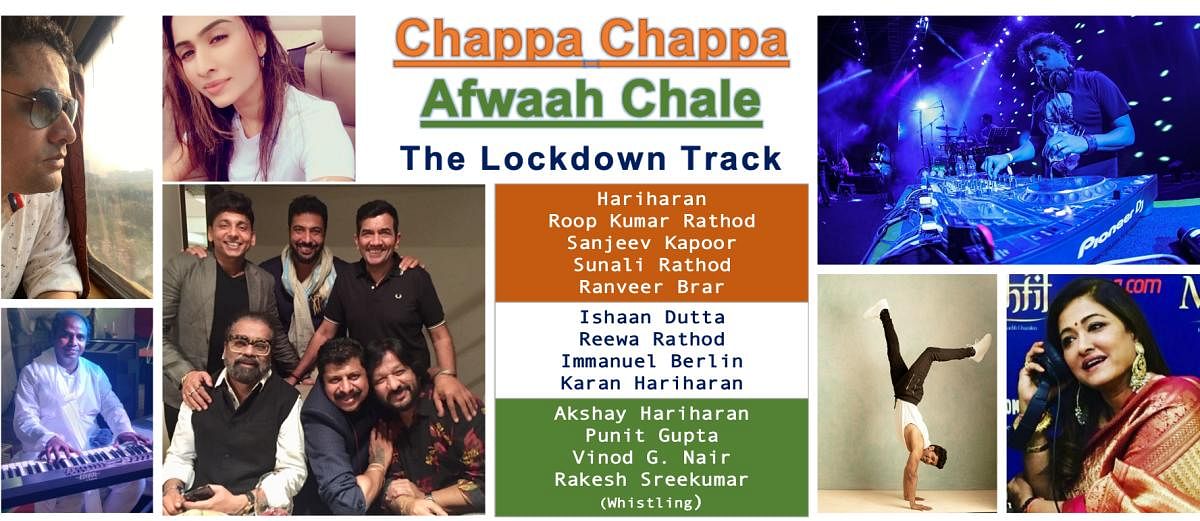
With people confined to their homes due to the Covid-19 outbreak, spreading rumours has become a concern. Fourteen artists have come together to produce a track to throw light on why it is harmful to believe everything on the Internet.
Inspired by Vishal Bhardwaj's 'Chappa Chappa Charkha Chale', foodpreneur Vinod G Nair created the lockdown version called 'Chappa Chappa Afwaah Chale'.
“This started off as a fun idea. As it progressed, we realised people are talking about how the virus has affected them but not the rumours have,” he said during a digital press conference to promote the song.
The track is sung by a group called the ‘The Sur-Viralists’, led by Padmashri awardee Hariharan and includes chefs Sanjeev Kapoor and Ranveer Brar, playback singers Roop and Sunali Rathod, and Ishaan Dutta, actor Karan Hariharan and music producer Akshay Hariharan, Reewa Rathod, merchant Punit Gupta, IT advocate Nadeem Lasani, cryptocurrency expert Rakesh Sreekumar, and music composer Immanuel Berlin.
“We have tried to use the track to tell people ‘Afwaah Roko, Corona Roko’ (stop rumours to stop corona),” said Sunali.
“Rumours create fear. Even the food ecosystem is changed by rumours of hoarding,” said Ranveer. “We need to use our networks to spread real, positive news. It is important that we are mindful, especially during this time.”
The experience of being quarantined can be frustrating, noted actor Karan Hariharan. “However, it is important to remember that you are protecting not only yourself but a lot of other people by staying inside,” he said.
In a first, ‘Chappa Chappa Afwaah Chale’ was recorded remotely, using cellphones. “There were a lot of limitations. We did not have the required equipment to record with,” said singer Hariharan.
The process of creating the track was on-the-fly, says Vinod. “Although it took us 15 minutes to pen down the lyrics, the entire process of recording the track and shooting the video took us eight days," he said.
The professional musicians in the group were apprehensive at first, he added, owing to the lack of equipment. Initially, the group had planned to record the track over the video conferencing app, Zoom. “We had to have everyone record their individual parts on their phones and send it to us. It was the same with shooting the video. Coordinating between 14 people is a humongous task,” he said.
Vinod thinks this could start a trend. “It is clear that several jobs can be done remotely. With many people working from home, new ideas can emerge. If we could shoot and piece together a music video remotely, we might even be able to produce feature films in a similar fashion,” he said.